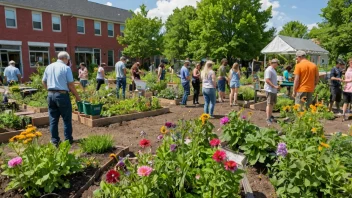In an ever-changing world, crises can arise unexpectedly, leaving individuals and communities to navigate through difficult times. Resilience, the ability to adapt and recover from adversity, is crucial for maintaining mental and emotional wellbeing. This article explores strategies to cultivate resilience, empowering individuals to face challenges with strength and hope.
One of the first steps in building resilience is understanding that it is a skill that can be developed. Self-awareness plays a significant role in this process. By recognizing our emotions and responses to stress, we can better manage our reactions. Keeping a journal or engaging in meditation can help enhance self-awareness, allowing us to reflect on our thoughts and feelings during challenging moments.
Social connections are another vital component of resilience. Building a strong support network can provide comfort and encouragement during tough times. Reaching out to friends, family, or community groups not only fosters a sense of belonging but also allows for shared experiences and collective healing. Volunteering for community service or joining local organizations can help strengthen these connections while contributing positively to society.
Additionally, maintaining a healthy lifestyle is essential for resilience. Regular physical activity, a balanced diet, and sufficient sleep can enhance both physical and mental health. Exercise, in particular, releases endorphins, which can improve mood and reduce stress. Prioritizing self-care and engaging in activities that bring joy can also bolster resilience, helping individuals cope with adversity more effectively.
Another critical aspect of resilience is developing problem-solving skills. When faced with challenges, approaching them with a solution-oriented mindset can help individuals feel more in control. Practicing critical thinking and breaking problems down into manageable steps can lead to effective solutions and a sense of accomplishment.
In times of crisis, it is also important to practice gratitude. Focusing on the positive aspects of life, no matter how small, can shift our perspective and foster a sense of hope. Keeping a gratitude journal or simply taking moments to appreciate the good can help maintain a positive outlook, even in difficult situations.
Finally, seeking professional support when needed is a sign of strength, not weakness. Mental health professionals can provide guidance and strategies to cope with stress and trauma, helping individuals build resilience more effectively.
In conclusion, cultivating resilience is an ongoing journey that involves self-awareness, social connections, a healthy lifestyle, problem-solving skills, gratitude, and seeking support. By implementing these strategies, individuals can enhance their ability to cope with crises and emerge stronger. In a world filled with uncertainty, fostering resilience not only benefits ourselves but also inspires those around us to face challenges with courage and hope.






